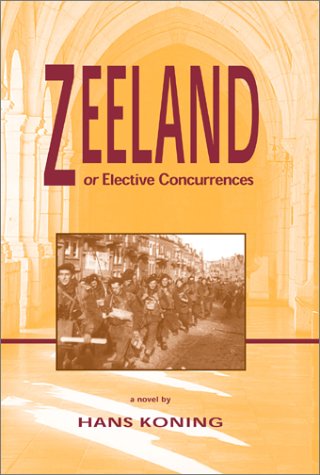Zeeland, Or Elective Concurrences
This novel moves along two tracks, one beginning in 1941 with an American enlisted in the British Army fleeing through German-occupied France, and the other beginning in 1871 with a Paris Communard printer escaping from the repression which followed the quelling of that revolt. The two stories take place in some of the same settings, particularly those leading out of France into Spain. Early on we are informed that the fleeing Communard Michel Beauchamp was the grandfather of the Michael Beauchamp from the World War II era.
Both stories involved love and separation. The printer has to leave his wife and young son who emigrate to America under the impression that he is dead. The eventual grandson teams up with a young Dutch woman and they help each other escape the Germans only to be separated by different wartime destinies.
The omniscient narrator blends the two timeframes and provides explanations for the reader of the modern era. For example, we are told that $1500 was a lot of money in the 1940s, and that young women were virgins as a matter of course. Early on we are subjected to the narrator’s theory of elective concurrences, apparently a justification for the use of coincidences that would have made Dickens blush.
At the core of the book are two interlocking stories of love and adventure. Although both are set during key moments of history, the effect is that of ordinary people fleeing from history and eventually escaping some of the consequences of living in what have been referred to as interesting times.










